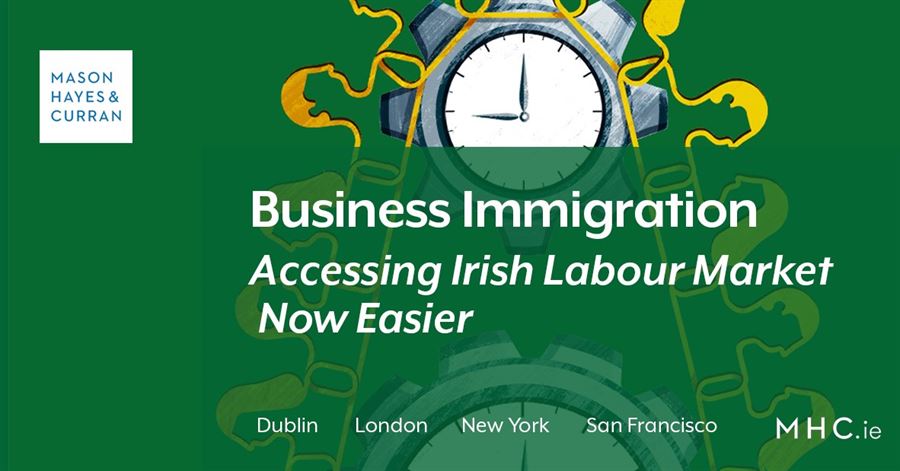
A new mechanism has been introduced to make it easier for spouses and partners of CSEP holders to get permission to work in Ireland. The Irish Government has also announced a new pre-clearance procedure to further simplify the process.
Who is a Critical Skills Employment Permit for?
CSEPs are designed to attract highly skilled individuals into Ireland to reside and take up roles with skills that are in high demand and not readily available in the Irish/EEA labour market. They allow for immediate family reunification and a fast track to Stamp 4 immigration permission to remain in the State and to take up employment without the requirement for an employment permit. Recently announced changes now make it easier for family members of CSEP holders to access the labour market also, further increasing the attractiveness of this permission to high skilled individuals.
What has changed for spouses and partners of CSEP holders?
Previously, spouses and de facto partners of CSEP holders were granted permission to reside in Ireland on Stamp 3 conditions and were required to apply for an employment permit if they also wanted to work.
As of 6 March 2019, spouses and de facto partners of CSEP holders who are currently resident in Ireland or who want to travel with or join their family member who holds a CSEP, no longer need to obtain an employment permit. Instead, upon meeting certain criteria, they will be given Stamp 1G conditions at their registration appointment with the Irish National Immigration Service (INIS). This will allow them to access the labour market without the need for an employment permit.
What is the new procedure for a spouse to acquire permission to work?
Spouses of CSEP holders should, after their arrival in Ireland, attend their local immigration office to register and apply for an Irish Residence Permit (IRP). The CSEP holder should attend this appointment with their spouse and bring a copy of their CSEP. The local immigration officer will issue eligible persons an IRP on Stamp 1G conditions. This means that spouses of CSEP holders can now legally work in Ireland without the need for an employment permit.
Introduction of pre-clearance for de facto partner of a CCSEP holder
The requirement for a de facto partner to obtain an employment permit has now been removed. The INIS will grant eligible de facto partners of CSEP holders permission to reside in Ireland on Stamp 1G conditions without the need to obtain an employment permit. This will allow access to the labour market without an employment permit.
From 1 April 2019, a new pre-clearance procedure applies to de facto partners and will be required to apply to the INIS for permission to reside in Ireland before they travel.
When de facto partners receive pre-clearance permission, following arrival in Ireland they can attend a local immigration officer with your partner who holds a CSEP. The local immigration officer will issue eligible persons an IRP on Stamp 1G conditions which will allow them to work without the need for a permit.
What if you are already in Ireland?
Individuals who reside in Ireland on Stamp 3 conditions no longer need to apply for a work permit in order to access the labour market. They can simply attend a local immigration office with their spouse/de facto partner who is resident in Ireland on the basis of a CSEP and request Stamp 1G conditions. A copy of the CSEP must be provider to the immigration officer who will issue eligible persons an IRP on Stamp 1G conditions without the need for an employment permit.
Conclusion
The Irish Government remains committed to drive strategies to attract and retain highly skilled foreign nationals to make it easier for companies based in the State to fill key roles.
This welcome change means that spouses and partners of CSEP holders will no longer need an employment permit to work in Ireland. On arrival in the State, eligible spouses and de facto partners will be granted immigration permission with a right to work.
For more information on how these developments could affect your employees, contact a member of our Employment & Benefits team.
The content of this article is provided for information purposes only and does not constitute legal or other advice.





